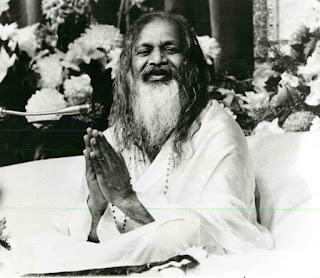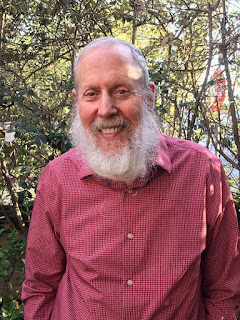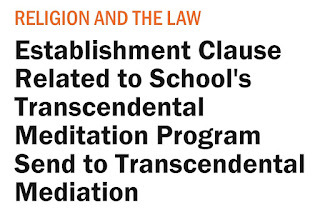Chicago public high school students allege they were coerced into participating in a Hindu puja ceremony as part of a multiyear study of Transcendental Meditation's ability to reduce crime from University of Chicago's Urban Labs and the David Lynch Foundation.
Richa Karmarkar
RNS
May 13, 2024
(RNS) — Kaya Hudgins was a 16-year-old sophomore at a southwest-side Chicago public high school when her teachers announced a new mandatory program called “Quiet Time,” a twice-daily Transcendental Meditation practice designed to “decrease stress and the effects of trauma” for students living in high-crime neighborhoods.
“I didn’t think much of it,” said Hudgins, now 21 and living in Texas. “I thought that, you know, it would just be basic meditation. I had no clue about what Hinduism was or what it was about.”
To be “initiated” into the Quiet Time practice, Hudgins recalls, she and her classmates were taken individually to a small room, told to place an offering of fruit at an altar with a man’s photograph and brass cups of camphor, incense and rice, and made to repeat the Sanskrit words a representative uttered. At the end, the representative whispered a unique, one-word mantra into her ear, according to Hudgins, and told her not to repeat it to anyone. The man in the photograph, she would later find out, was Brahmananda Saraswati, or Guru Dev: the master of Maharishi Mahesh Yogi, the Hindu guru who started the global TM movement in 1955.
“It was unusual,” added Hudgins, who said she later researched her mantra online and found it was another name for a Hindu god. “The setting was just dark, and there were objects in front of me. The lady, she rang a bell and had me repeat something after her. It felt really weird.”
This “ceremony of gratitude” as it was put forth by the David Lynch Foundation, the organization behind the $3 million Quiet Time program, resembles a form of Hindu puja, or worship ritual. This practice was “deceptively marketed to public schools as non-religious,” according to Hudgins’ attorney, John Mauck, and serves as the basis of an ongoing lawsuit against the David Lynch Foundation and the Board of Education of the City of Chicago for violating the establishment clause of the First Amendment.
“There’s no gratitude here,” said Mauck. “It’s all invocation to Hindu deities to channel their energies through the participants. So that’s where it’s not teaching about Hinduism; it’s practicing Hinduism.”
The David Lynch foundation did not respond to multiple requests for comment.
CPS told RNS in a statement, that the district “continuously” reviews its programs “to ensure they are operating as intended and implement changes as needed to ensure students can continue to learn, grow, and thrive.”
Hudgins’ case, which was filed in January of last year and is pending a court date, was granted class action status by a federal judge last month, meaning anyone who reached the age of 18 on or after Jan. 13, 2021, and who was a student between 2015-2019 could have a standing in the lawsuit. During those four years, the David Lynch Foundation and University of Chicago’s Urban Labs, a social and behavioral research initiative on community violence, were testing the Quiet Time study in five Chicago public schools.
Of the more than 2,000 student participants in the program, many, according to Mauck, were told not to tell their parents about it, “especially if they were religious,” he said. And if they did not want to participate or sign the waiver — like Hudgins, who said it went against her Muslim beliefs — students were reprimanded or told that not signing would affect their academic standing.
“I feel like that affected my faith in a weird way, because I felt like I wasn’t committed to my faith, like I wasn’t praying five daily prayers but was required to do the meditation,” said Hudgins.
After a 2019 presentation to the Chicago Public School board by a former staff member, including complaints about Quiet Time from more than 60 students, CPS came to the David Lynch Foundation with a compromise: They would continue the 15-minute meditations during class time but would no longer do the initiation puja. The Lynch foundation refused, instead ending the study and partnership.
Mauck, whose firm has settled two other similar cases, said his legal action has been informed by the 1979 landmark case Malnak vs. Yogi, when a TM course was offered to students at five New Jersey high schools by the World Plan Executive Council, under Maharishi’s purview. After a review of the meanings behind the Sanskrit incantations involved in the puja, the implementation of TM in public schools was found to be unlawful.
Transcendental Meditation movement founder Maharishi Mahesh Yogi in 1977. (RNS archive photo)
“Maybe the Lynch foundation thought people would forget about it, and they tried to say it was a different case, different group,” he said. “But it was the same Transcendental Meditation that has a plan and a process and a ceremony. The puja doesn’t really change. Transcendental Meditation is the same everywhere.”
Transcendental Meditation, as described on the David Lynch Foundation’s website, is an “effortless technique” that “allows the active thinking mind to settle inward to experience a naturally calm, peaceful level of awareness.” TM, as compared to other forms of meditation, focuses on one sound or mantra, the repetition of which, proponents say, may cause one to get deeper and deeper into a meditative state of self-hypnosis, thus increasing focus and lessening stress. The foundation’s websites claims more than 450 peer-reviewed published studies on TM documenting its positive effects on stress-related disorders, cognitive functioning and overall health and well-being.
According to those familiar, like former TM instructor Aryeh Siegel, Maharishi initially sought to share this simple sound meditation technique with the world, intent on getting anyone, regardless of religious background, closer to “cosmic consciousness.”
Siegel used to believe in this message. A former TM instructor, Siegel met his wife at the national headquarters during the six years he taught there in the 1970s, along with a group of fellow adherents he described as “pretty normal people.”
“We were smart, young, committed, going to save the world by bringing meditation to everybody,” he said.
But, as TM gained traction, spurred on by its A-list celebrity adherents, like the Beatles and Clint Eastwood, Siegel said he saw the organization shift from its original ideals to a “scam to make money.” As hundreds of thousands of Americans became interested in TM — and paid course fees in the thousands — Siegel said Maharishi’s claims became increasingly grandiose — promising TM could help you fly, levitate, turn invisible — and the movement “became like really, very, very cultish.”
Maharishi died in 2008 and today Siegel operates a website called Transcendental Deception and has written an insider tell-all book of the same title. He hopes to be a resource to lawyers and others seeking to expose TM and what he describes as the “lies” about its religious aspects.
“I don’t have a problem with it, if they’re honest about it,” said Siegel. “How do you not tell people that this is what goes on here. If you want to learn Transcendental Meditation, this is the ceremony.”
Filmmaker David Lynch, who began his own TM practice in 1973, founded the organization in 2005 with the goal of bringing TM to “at-risk populations” around the world, including inner-city students, according to its website. Today, the foundation runs on million dollar donations and testimonies from celebrities ranging from Gwyneth Paltrow to Arnold Schwarzenegger.
The research study of which Hudgins was a part reportedly released preliminary results in 2019 that showed a reduction in the incidents of violent crime arrests for students who took the Transcendental Meditation program compared to the control group. But Mauck is skeptical.
“We have been looking after a document, arguing court motions to get further discovery,” said Mauck. “‘How did you come up with this number?’ and then being stonewalled. So as far as I’m concerned, it’s another assertion without a factual basis.”
For Syama Allard, a practicing Hindu and content writer for the Hindu American Foundation, the ordeal rings alarm bells of co-opting Hindu practices, like meditation or yoga, for “negative” intentions. “You can definitely rationalize in your mind or justify doing corrupt, sort of absurd things when you think you’re doing it in the name of spirituality.”
“At what point is something positive being used for some sort of selfish motivation, self aggrandizement or money?” he said. “That’s the point where it really starts to veer off from what Hindu spirituality is really supposed to be about.”
Hudgins, who now works in the makeup industry, hopes this lawsuit will help others in her situation.
“Now that I’m old enough, I can actually see what was going on and I’m actually happy to prevent it from happening to other children,” she said. “I can make sure that other students won’t be deceived.”
https://religionnews.com/2024/05/13/4147609/?fbclid=IwAR2w089ijCpMYdVOWCWBIzQR0tid6Ohlsn55jB6IJGxPXOm8BuTL2Fz6zUE







